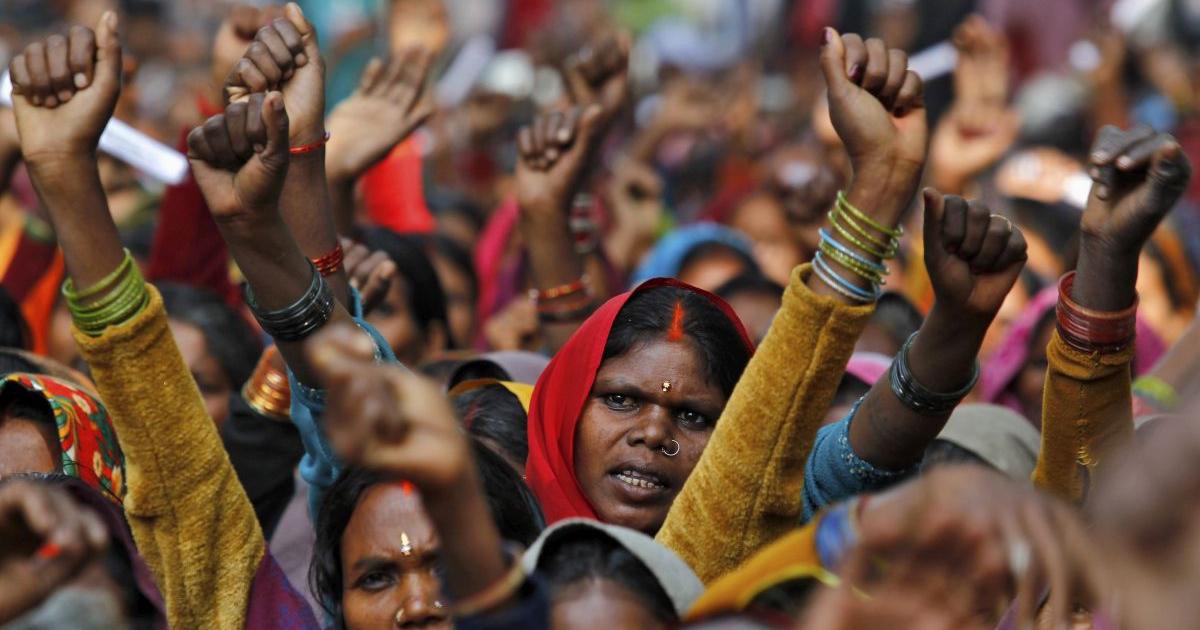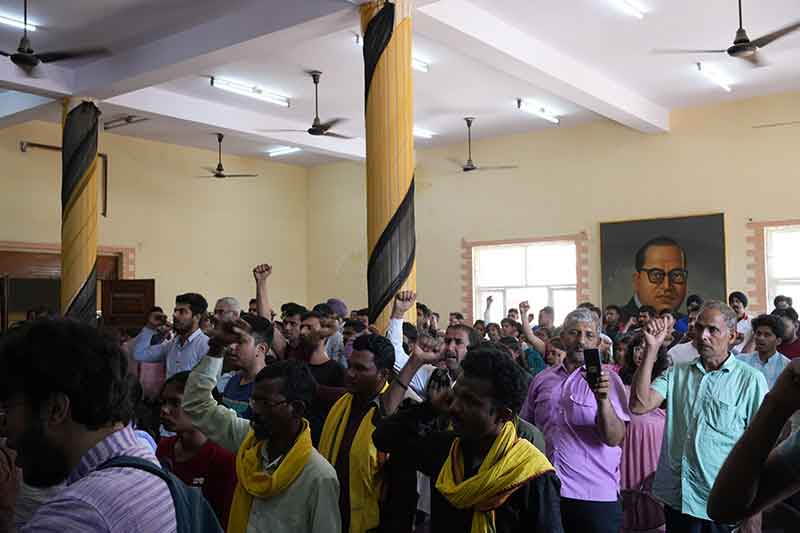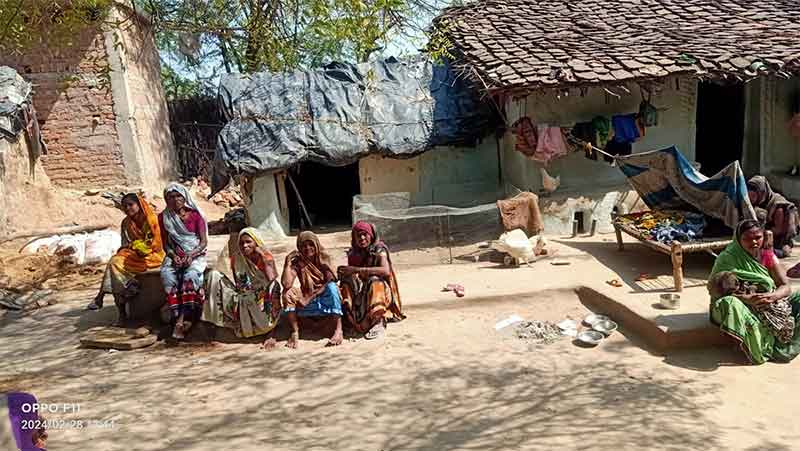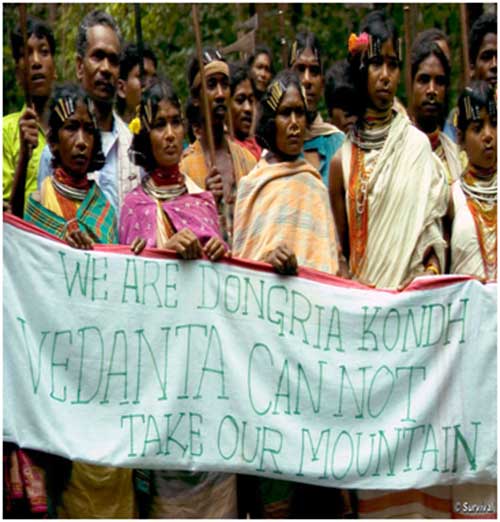
Many commentators on land and forest rights, including former senior government officials, have expressed serious concern at the land alienation suffered by tribal farmers and the dilution of their forest rights. While this has led to a serious livelihood crisis among a large number of tribal households, in addition this has led to immense threats to the rich traditional wisdom of tribal communities with respect to farming systems which protect environment instead of burdening and polluting environment, with respect to amazing biodiversity protected, valued and nurtured by them from generation to generation ( in the form of a wide diversity of traditional seeds and in other ways), with respected to nutrition and medicinal value of many plants and herbs and trees which grow freely in forests on their own.
Those who have tried to work closely with tribal farmers and tried to understand their systems while according proper respect have been able to understand the wisdom of these systems which seek to obtain very healthy food and meet other basic needs from a mixed system of farms and forests without causing any pollution and in fact nurturing the sustainability of the system in several time-honored ways. Very senior scientists like the top rice scientist Dr. R.H.Richharia, former director of Central Rice Research Institute, who worked closely with sympathy and understanding with tribal farmers ( particularly of Chattisgarh) testified to their wisdom and perseverance in protecting thousands of varieties through their indigenous systems, something which has been increasingly threatened by the thoughtless onslaught of modernity which does not even recognize the existence of valuable traditions.
This wisdom of tribal communities is accompanied by other wisdom relating to understanding weather conditions and adjusting to adverse weather. All this wisdom is now needed more than ever before in times of climate change but despite there is overwhelming attitude of neglect bordering on contempt towards this traditional wisdom. This neglect will prove very costly.
It is by now widely agreed that tribal communities in India have suffered in many cases from extreme injustice in most basic livelihood contexts of farmland and forest rights. In a widely quoted paper ‘Review of land-reforms during 1950-95’ Sukumar Das a former senior government official has written,”…. Land legislation to protect the tribal people has failed to achieve its basic objective. In fact, more than 50 per cent of the total land allotted by the government has already been alienated. The state governments taken together have so far allotted 0.47 million hectares of vested land to 0.42 million tribal households, whereas 0.31 million hectares of tribal land has been alienated from 0.24 million tribal households of India”.
The overall development strategy pursued by India in recent times has involved ruthless displacement of farmers and rural communities, and due to the incidental higher concentration of mineral and forest wealth wealth as well as hydro-power potential in tribal regions, tribal communities have been among those whose who have been affected most adversely by displacement.
Despite the tribals bearing the biggest share of the burden of many sided displacements and the high level of alienation of tribals from their land, there was a flicker of new hope when during 2005-2008 the Scheduled Tribes and Traditional Forest Dwellers Forest Rights Act (briefly called Forest Rights Act or simply FRA) was passed and its rules framed. This Act hoped to correct the ‘historical injustice’ that had been caused to farmers.
The background to this injustice was that in colonial times vast areas were arbitrarily declared as forest dept. land without any consideration for the rights of the people obtaining their livelihood from this land. After this these people were called encroachers on their land and were subjected to all kinds of repression including imprisonments, cruel beatings and extortion of bribes. The stated aim of the FRA was to correct this injustice by devising a procedure for regularising the land holdings cultivated by tribal households.
The procedure provided by the law was that tribals and other traditional forest-dwellers would submit their claims, these would be examined and if found to be correct then legal entitlements will be provided to them. As the entire objective of this law was to correct the historical injustice, it was widely believed that the overwhelming majority of claims will be accepted and tribals/forest dwellers will be in a much better position by receiving entitlements.
But the real picture emerging from the implementation of FRA so far has been different, Firstly, the number of rejection of claims has been very high. Those whose claim was rejected were often not even informed about it. Secondly, a significant number of deserving allottees have been simply left out as they could not send their claims properly in time. Lastly, even in the case of those whose claims were accepted, often the acceptance was only for a small part of land being cultivated, hence even in acceptance cases the livelihood situation may have been actually eroded.
An immediate review of the implementation of FRA should be taken up and corrections should be introduced so that the task of correcting historical injustice is achieved. More specifically the high rate of claim rejections should be brought down significantly, the tendency to reduce land cultivated in most cases should be checked and those who couldn’t get the chance to present their claims should get proper help to present their claims.
If despite such a review several tribals and other poor farmers involved in disputes with the forest department are left out of the scope of this legislation, then in such cases efforts should be made to involve such people in tree-farming schemes so that the objective of increasing tree-cover can be reconciled with protecting the livelihood of these people and no evictions are necessary.
All cases to tribal land alienation should be resolved speedily so that the land of tribals is restored to them.
All the issues relating to land and forest rights need to be resolved not just from the perspective from justice to tribal communities and from the perspective of protecting their endangered livelihoods, but in addition also from the perspective of protecting invaluable traditional wisdom relating to farming and food which will prove even more useful in times of climate change.
Bharat Dogra is a journalist and author. His recent books include Protecting Earth for Children and Man Over Machine.
IF YOU LIKED THE ARTICLE SUPPORT PEOPLE’S JOURNALISM















































